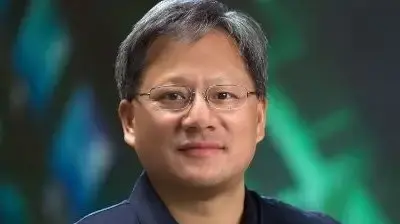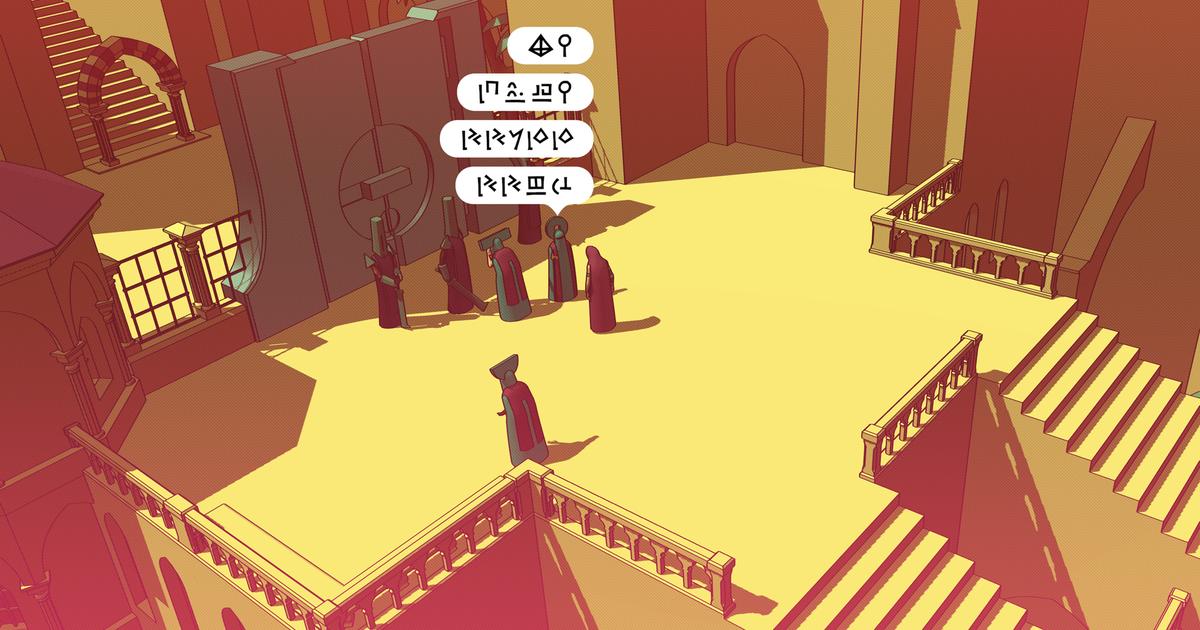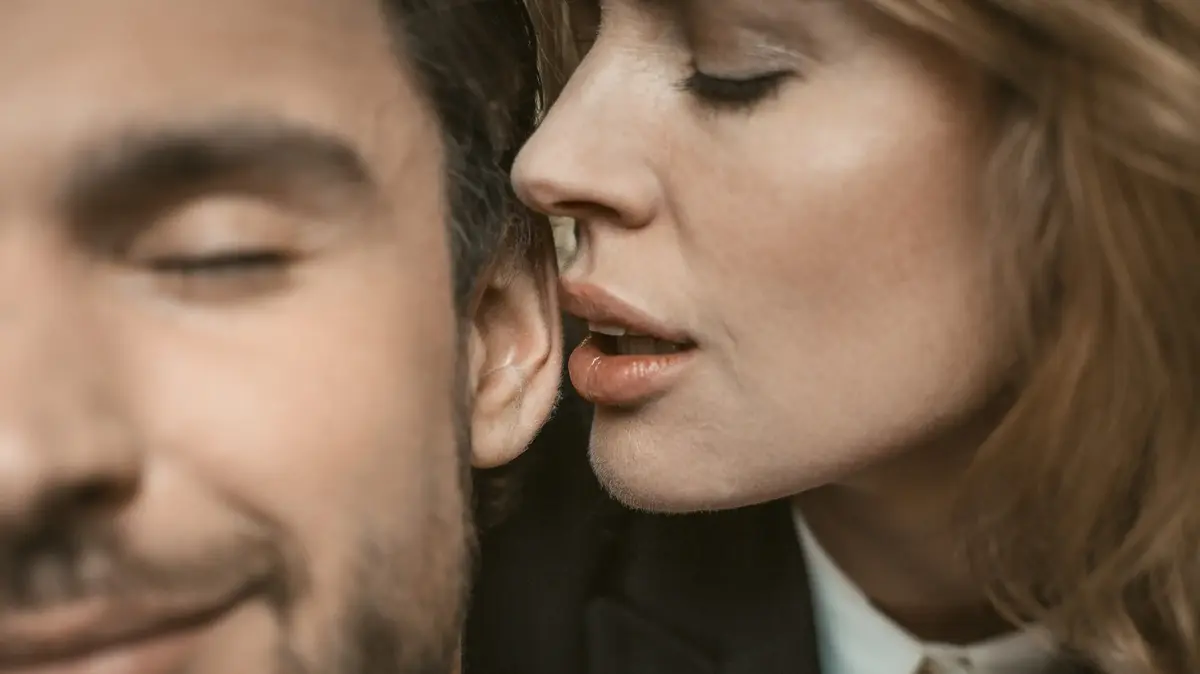Doris Cheucarama is part of the Wounnaan indigenous community, which inhabits territories between Colombia and Panama, and is one of the few women capable of writing in their language: Woun Meu.
Spanish has been prevailing for years in a place where female illiteracy reaches very high percentages.
To avoid the death of the woun meu, Cheucarama dedicates himself to translating pages from Spanish into her mother tongue.
In practice, the translator herself runs into a great difficulty: the letters of woun meu do not exist on keyboards.
“I have several letters from my language on a Word page and I copy them, one by one, to write word by word,” she admits.
Without the ability to be written fluently, woun meu (written) seems to have its days numbered.
To find a solution to this and other similar problems, it took 10 days: from October 18 to 28.
Less than two weeks in which some sixty anonymous people from 15 Latin American countries met in Panama City with a common goal: to make this a better world.
How?
Thanks to citizen laboratories, a concept as innovative as it is cooperative, loaded with creativity and peppered with the madness of good ideas.
The starting point was set by the Citizen Innovation team of the Ibero-American General Secretariat (SEGIB) together with the Government of Panama, the Spanish Agency for International Development Cooperation (AECID) and the support of the General Directorate of International Associations (INTPA). , for its acronym in English) of the European Commission.
These organizations established that the projects that would be presented in the eighth edition of the Citizen Innovation Laboratories (LABICPA) had to face a challenge: "Digitalization and new technologies to improve the quality of life of women and girls."
Shortly after the challenge was published, proposals for participation began to arrive at the SEGIB.
The head of the Secretariat's citizen innovation project, Pablo Pascale, together with the innovation coordinator, Marian Romiti, and other collaborators, selected nine ideas.
They assigned different candidates to each plan until they formed multidisciplinary teams with a single objective: to give their all to develop "something" that improves people's lives and that, as an essential requirement, its manufacturing cost does not exceed 300 euros.
After days of teamwork, between drafts, schemes and brainstorming in a large room of the Latin American and Caribbean Parliament, the different groups put together nine transformative initiatives to improve the lives of women and girls in various parts of the planet.
These are:
Comarca: the keyboard for an indigenous community to write in their language
Segio Aristizabal is a typographer in Bogotá and the promoter of the project
Shire
.
Aristizabal noticed the Wounaan indigenous community, where Doris Cheucarama lives.
In an area that covers part of Colombia and part of Panama, the progress of digitization and the use of Spanish are leaving Woun Meu in a very bad position, a language spoken by 20,000 people and with very few published books and for which there are no keyboards, as Cheucarama explained.
“In addition, in the Wounaan indigenous people, as in most communities, the women are in charge of educating the children.
If we get them to write in their language with a keyboard, more texts can be disseminated and it will be easier to teach the new generations to read and write”, maintains Aristizabal.
In 10 days, the Comarca group, helped by members of the Wounaan community, developed a computer system capable of turning any keyboard into a Woun meu keyboard.
They also designed a digital keyboard to be able to type on mobile devices, tablets or applications.
Doris Cheucarama was one of the first to be able to prove it.
“Until now, she translated texts as if she were Gutenberg.
She had to put letter by letter ”, Aristizabal is proud.
“Before, to translate a page it took a whole day.
Now, I think she could do it in two hours and I'm still not going fast ”, Cheucarama is excited.
Thanks to the design of a keyboard with these characteristics, Wounaan women will be protagonists of their own educational development and will be able to preserve their language.
Keyboard in the woun meu language and stickers to transform other devices.Alfonso Congostrina
Momday: the conciliation tool
Another proposal was Momday, a time management application with which to invest in the utopia of balancing personal life with work life.
The promoter Paula Sousa's team has designed
software
that allows mothers' work schedules to be unified with their children's schedules and with the possibility of, in the same application, summon family and friends to help care for minors old.
Chat 21: the guide to guide mothers of girls and boys with Down syndrome
Gabriela Laborda is Brazilian and is the mother of Maira, a seven-year-old girl who has Down syndrome.
“When Maira was born I found myself very alone and I didn't know where to find help”, she confesses Laborda.
As a result of that anxiety, and the need to help people with a similar problem, Chat 21 was born in Rio de Janeiro.
At the beginning it was a WhatsApp in which information was shared and that has been operating in Brazil for five years.
LABICPA has helped the project go one step further and become a digital platform.
“Now, people who have children with Down syndrome will be able to help each other, but they will also have a direct connection with doctors, therapists, speech therapists, educational psychologists, cardiologists…”, the promoter is proud.
Safe online: the fight against digital violence
Marión Briancesco never thought it would be so complicated to end the scourge of digital violence for gender reasons.
For 10 days, Briancesco and her team worked on building an application that can detect up to eleven different types of digital violence.
"There are times when the victims themselves are not aware that they have been," she laments.
Safe Online - that's what the application and the working group are called - ran into many obstacles.
One of the most serious, the absence of typification of these crimes.
“We have managed to channel a process that led to complaints.
Even so, the priority is that women are taken into account and feel heard and, above all, respected”, admits the promoter after revealing that at least five out of 10 Panamanians have been victims of digital violence.
My EsCool: the end of gender stereotypes in schools
Mi EsCool is another online platform with a pharaonic mission: to eradicate gender stereotypes in schools.
Those responsible for the platform visited schools, interviewed and videotaped students from nine to 11 years old.
Their answers show that it is urgent to do something to break down stereotypes.
The works of Mi EsCool show that from the age of six "girls feel less intelligent than boys".
In one of the videos, fourth grade students appear stating: "Women are more delicate and can do housework better, such as cooking."
Another fantasizes: "When I grow up I would like to be a movie actress and, if I were a man, I would like to be a surveyor."
Thanks to the platform, it is intended to train teachers to educate and eradicate gender stereotypes from the classroom.
In the future,
My EsCool even aspires to evaluate if a center is free of stereotypes or not.
The objective is clear: to train the 3,953 educational centers in Panama so that this country can eradicate machismo in the younger generations.
The 70 participants of LABICPA, in Panama City.Alfonso Congostrina
Collective: the spokesperson for the citizenry
Colectiva is a digital platform that seeks to connect citizens with institutions in one of the first feminist virtual spaces in Latin America.
Thanks to this platform, it will be possible to follow the bills on gender and create spaces for dialogue that transform current politics into places of participation, transparency and accountability through new technologies.
Collective harvest: financing rural environments
Mayra Chávez is the promoter of the Cosecha Colectiva web platform.
This digital portal is used by a group of rural women from Sierra Gorda de Querétaro in Mexico to obtain financing.
In short, it is a community banking system.
Chávez and the rest of the members of the project verified that one of the discriminations faced by the women of Sierra Gorda is that they have been denied access to money.
Thanks to this platform, a savings and loan group is set up that allows the entrepreneurship of this group, thus improving their employment situation and, ultimately, their lives.
Wonderbox: a box that provides digital skills
Wonderbox's promoter, Marisol González, published a tweet —days after finishing the project— summarizing her experience at LABICPA: “I take with me an unforgettable experience, new friends and the drive to continue dreaming and creating other worlds”.
The world created by the Wonderbox participants is embodied in a kit.
A box full of virtual reality experiments, augmented reality, artificial intelligence... A box that serves as an excuse to train and raise awareness among school-age girls.
González maintains that her project is necessary, since for decades women have been victims of economic and labor disadvantages, but also technological ones.
With the Wonderbox kit, the team intends to give the impetus so that the girls in the schools prove that they are capable of generating technology and finish, once and for all,
with the digital divide.
It is one of the doors to "create other worlds" like the ones announced by González.
Cuida2: the problem of places in public kindergartens
The Cuida2 group, headed by the Brazilian Juliana Mitkiewicz, found that 3,500 children between the ages of zero and four who live in favelas do not have access to childcare places.
“The only solution that mothers find is an informal care network, which is not regulated and which is far from ideal,” she says.
Cuida2
generates a system to accompany and help mothers in the care of their children, with an interactive map that allows choosing a caregiver, whether they are mothers helping other mothers or certified caregivers.
A platform that gives parents the chance to go to work, look for work... with the peace of mind that their children will be cared for by people accredited by the platform itself.
After 10 days gathered in a room of the Latin American and Caribbean Parliament of Panama, the sixty elected managed to solve problems, help communities, improve the quality of life of women and girls and ensure that this world, based on good ideas and small efforts, be better and better thanks to the innovation and development of the nine projects.
The person in charge of citizen innovation at SEGIB, Pablo Pascale, recalled at the closing of LABICPA —in an auditorium surrounded by the personalities and political leaders of Panama— that these laboratories began to be carried out in 2013, but that they continue to maintain the same objective: "Search and find very specific solutions for people of flesh and blood."
You can follow PLANETA FUTURO on
,
and
, and subscribe
here
to our 'newsletter'
.















